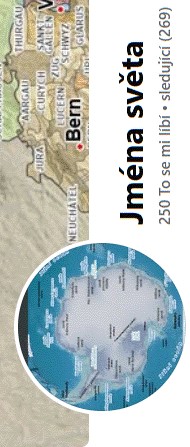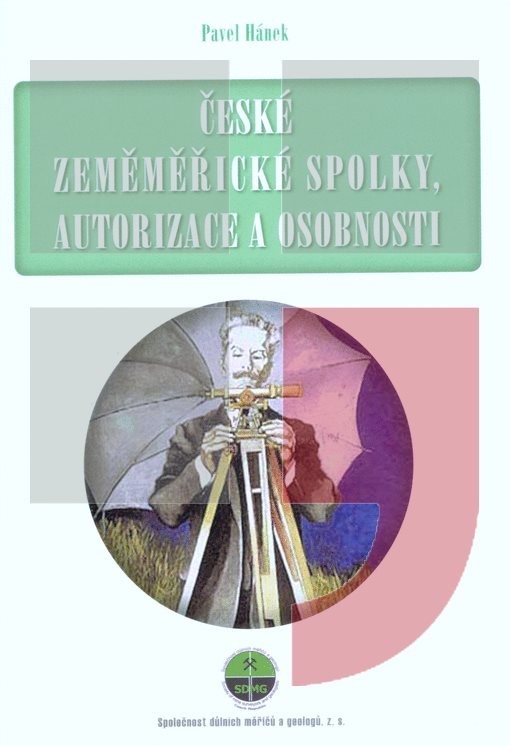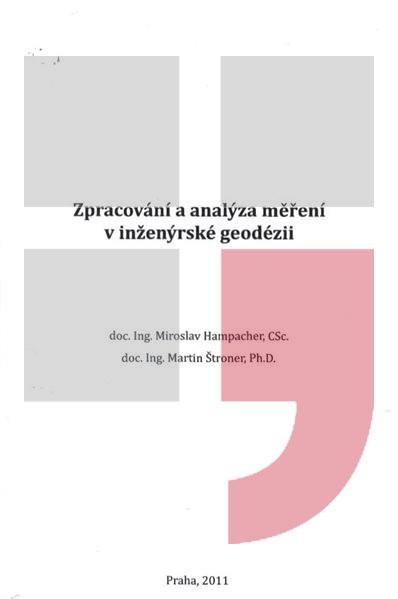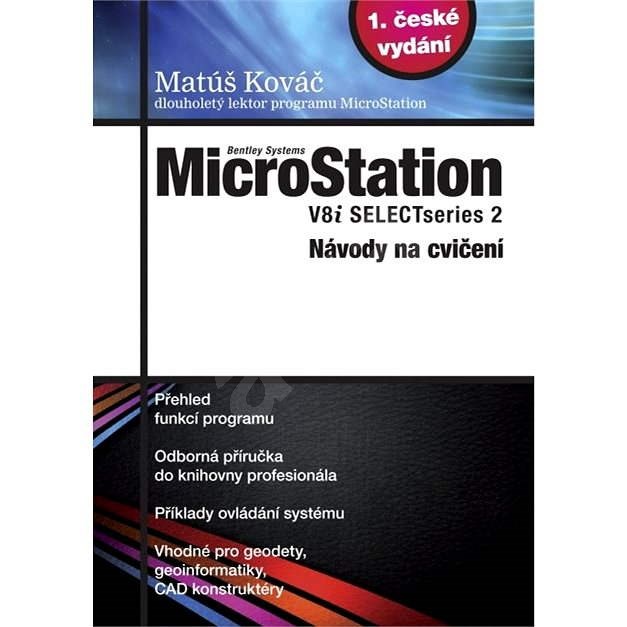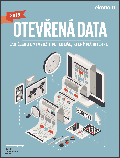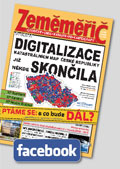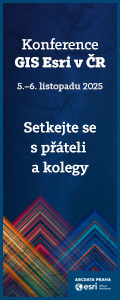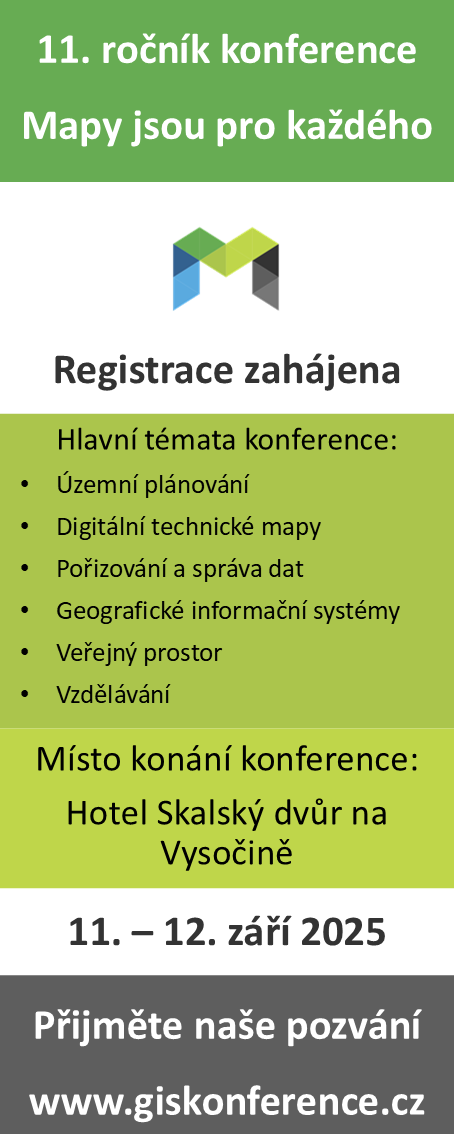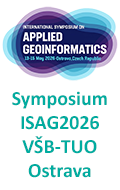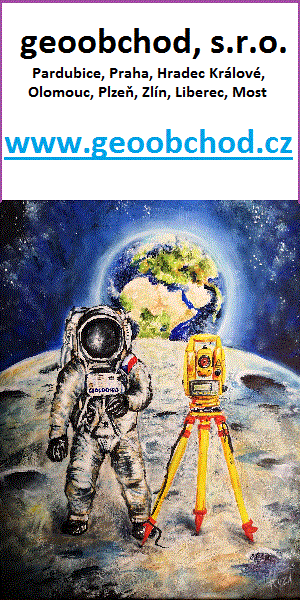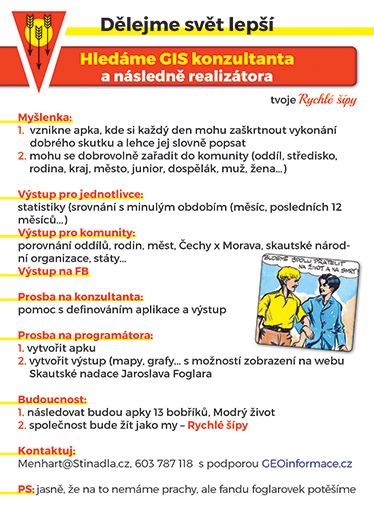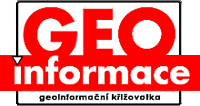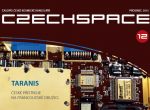zprávy
zdroje zpráv:20151217-Výběrové řízení ředitele sekce centrální databáze
17.12.2015 15:36 ČÚZK /Aktuality-resort/20151217-Vyberove-rizeni-reditele-sekce-centralni20151217-Výběrové řízení místopředseda a ředitel sekce zeměměřictví a katastru nemovitostí
17.12.2015 15:34 ČÚZK - předpisy a opatření /Aktuality-resort/20151217-Vyberove-rizeni-mistopredseda-a-reditel-s20151217-Výběrové řízení místopředseda a ředitel sekce zeměměřictví a katastru nemovitostí
17.12.2015 15:34 ČÚZK /Aktuality-resort/2015/20151217-Vyberove-rizeni-mistopredseda-a-reditel-s20151217-Výběrové řízení místopředseda a ředitel sekce zeměměřictví a katastru nemovitostí
17.12.2015 15:34 ČÚZK - předpisy a opatření /Aktuality-resort/2015/20151217-Vyberove-rizeni-mistopredseda-a-reditel-s20151217-Výběrové řízení místopředseda a ředitel sekce zeměměřictví a katastru nemovitostí
17.12.2015 15:34 ČÚZK /Aktuality-resort/20151217-Vyberove-rizeni-mistopredseda-a-reditel-s20151217-Výběrové řízení místopředseda a ředitel sekce zeměměřictví a katastru nemovitostí
17.12.2015 15:34 ČÚZK - předpisy a opatření Oznámení o vyhlášení výběrového řízení na služební místo místopředsedy a ředitele sekce zeměměřictví a katastru nemovitostí – informace zde.Oznámení o vyhlášení výběrového řízení na služební místo ředitele sekce centrální databáze katastru
17.12.2015 15:26 ČÚZK - předpisy a opatření /Urady/Cesky-urad-zememericky-a-katastralni/Uredni-deska/Oznameni-a-jina-uredni-sdeleni/Volna-mista/Oznameni-o-vyhlaseni-vyberoveho-rizeni-na-sluz-(2)Oznámení o vyhlášení výběrového řízení na služební místo ředitele sekce centrální databáze katastru
17.12.2015 15:26 ČÚZK - volná místa /Urady/Cesky-urad-zememericky-a-katastralni/Uredni-deska/Oznameni-a-jina-uredni-sdeleni/Volna-mista/Oznameni-o-vyhlaseni-vyberoveho-rizeni-na-sluz-(2)Oznámení o vyhlášení výběrového řízení na služební místo ředitele sekce centrální databáze katastru
17.12.2015 15:26 ČÚZK /Urady/Cesky-urad-zememericky-a-katastralni/Uredni-deska/Oznameni-a-jina-uredni-sdeleni/Volna-mista/Oznameni-o-vyhlaseni-vyberoveho-rizeni-na-sluz-(2)Ředitel sekce centrální databáze katastru nemovitostí
17.12.2015 15:26 ČÚZK - předpisy a opatření /Urady/Cesky-urad-zememericky-a-katastralni/Uredni-deska/Oznameni-a-jina-uredni-sdeleni/Volna-mista/Oznameni-o-vyhlaseni-vyberoveho-rizeni-na-sluz-(2)Ředitel sekce centrální databáze katastru nemovitostí
17.12.2015 15:26 ČÚZK - volná místa /Urady/Cesky-urad-zememericky-a-katastralni/Uredni-deska/Oznameni-a-jina-uredni-sdeleni/Volna-mista/Oznameni-o-vyhlaseni-vyberoveho-rizeni-na-sluz-(2)Ředitel sekce centrální databáze katastru nemovitostí
17.12.2015 15:26 ČÚZK /Urady/Cesky-urad-zememericky-a-katastralni/Uredni-deska/Oznameni-a-jina-uredni-sdeleni/Volna-mista/Oznameni-o-vyhlaseni-vyberoveho-rizeni-na-sluz-(2)Oznámení o vyhlášení výběrového řízení na služební místo místopředsedy a ředitele sekce zeměměřictv
17.12.2015 15:24 ČÚZK - předpisy a opatření /Urady/Cesky-urad-zememericky-a-katastralni/Uredni-deska/Oznameni-a-jina-uredni-sdeleni/Volna-mista/Oznameni-o-vyhlaseni-vyberoveho-rizeni-na-sluz-(1)Místopředseda a ředitel sekce zeměměřictví a katastru nemovitostí
17.12.2015 15:24 ČÚZK /Urady/Cesky-urad-zememericky-a-katastralni/Uredni-deska/Oznameni-a-jina-uredni-sdeleni/Volna-mista/Oznameni-o-vyhlaseni-vyberoveho-rizeni-na-sluz-(1)Oznámení o vyhlášení výběrového řízení na služební místo místopředsedy a ředitele sekce zeměměřictv
17.12.2015 15:24 ČÚZK - volná místa /Urady/Cesky-urad-zememericky-a-katastralni/Uredni-deska/Oznameni-a-jina-uredni-sdeleni/Volna-mista/Oznameni-o-vyhlaseni-vyberoveho-rizeni-na-sluz-(1)Místopředseda a ředitel sekce zeměměřictví a katastru nemovitostí
17.12.2015 15:24 ČÚZK - volná místa /Urady/Cesky-urad-zememericky-a-katastralni/Uredni-deska/Oznameni-a-jina-uredni-sdeleni/Volna-mista/Oznameni-o-vyhlaseni-vyberoveho-rizeni-na-sluz-(1)Místopředseda a ředitel sekce zeměměřictví a katastru nemovitostí
17.12.2015 15:24 ČÚZK - předpisy a opatření /Urady/Cesky-urad-zememericky-a-katastralni/Uredni-deska/Oznameni-a-jina-uredni-sdeleni/Volna-mista/Oznameni-o-vyhlaseni-vyberoveho-rizeni-na-sluz-(1)Oznámení o vyhlášení výběrového řízení na služební místo místopředsedy a ředitele sekce zeměměřictv
17.12.2015 15:24 ČÚZK /Urady/Cesky-urad-zememericky-a-katastralni/Uredni-deska/Oznameni-a-jina-uredni-sdeleni/Volna-mista/Oznameni-o-vyhlaseni-vyberoveho-rizeni-na-sluz-(1)Galileo’s dozen: 12 satellites now in orbit
17.12.2015 14:40 ESA Navigation
The pace of deploying Europe’s own satellite navigation system continued to increase with today’s launch of the latest pair of Galileo satellites, doubling the number of satellites in space within nine months.
Galileo’s dozen: 12 satellites now in orbit
17.12.2015 14:40 ESA Navigation
The pace of deploying Europe’s own satellite navigation system continued to increase with today’s launch of the latest pair of Galileo satellites, doubling the number of satellites in space within nine months.
First "Fundamental Elements" Info Day, 8 March, Prague
17.12.2015 14:02 European GNSS AgencyMark your calendar for the first "Fundamental Elements" Info Day, 8 March 2016, Prague, GSA headquarters.
Don’t miss the opportunity to learn more about the new calls for proposals on Fundamental Elements that will be published on the GSA website in the beginning of 2016.
Led by the GSA, Fundamental Elements1 is a new EU R&D funding mechanism supporting the development of chipsets and receivers to help the overall European GNSS strategy for market uptake.
The objectives of Fundamental Elements projects are to:
- Facilitate the adoption of the European GNSS Systems, building on innovative services and differentiators
- Improve the competitiveness of EU industry
- Address user needs in priority market segments
- Maximise benefits to European citizens
This first Info Day2 will give an opportunity for businesses to learn more about the "Fundamental Elements" funding from GSA technical, Legal and Financial Officers who will present the details of the Calls. Web-streaming of the Info Day presentations may be available.
If you have any questions related to the calls, please submit them by 3 March 2016 at 17:00 to the following email address: market@gsa.europa.eu
The answers shared during the meeting will be published on the GSA website following the event.
Read more:
The Fundamentals of European GNSS
GSA hosts Workshop on Galileo Chipsets and Receivers
GSA launches R&D support for the advancement of European GNSS chipset and receiver technologies
Media note: This feature can be republished without charge provided the European GNSS Agency (GSA) is acknowledged as the source at the top or the bottom of the story. You must request permission before you use any of the photographs on the site. If you republish, we would be grateful if you could link back to the GSA website (http://www.gsa.europa.eu).
- 1. Established by 2013 GNSS Regulation following the Regulation (EU) No 1285/2013 of the European Parliament and of the Council of 11 December 2013 on the implementation and exploitation of the European satellite navigation systems.
- 2. Please note that the Fundamental Elements programme is covering both, PRS and non-PRS related projects – this information day is focussing only on the non-PRS ones.

First "Fundamental Elements" Info Day, 8 March, Prague
17.12.2015 14:02 European GNSS AgencyMark your calendar for the first "Fundamental Elements" Info Day, 8 March 2016, Prague, GSA headquarters.
Don’t miss the opportunity to learn more about the new calls for proposals on Fundamental Elements that will be published on the GSA website in the beginning of 2016.
Led by the GSA, Fundamental Elements1 is a new EU R&D funding mechanism supporting the development of chipsets and receivers to help the overall European GNSS strategy for market uptake.
The objectives of Fundamental Elements projects are to:
- Facilitate the adoption of the European GNSS Systems, building on innovative services and differentiators
- Improve the competitiveness of EU industry
- Address user needs in priority market segments
- Maximise benefits to European citizens
This first Info Day2 will give an opportunity for businesses to learn more about the "Fundamental Elements" funding from GSA technical, Legal and Financial Officers who will present the details of the Calls. Web-streaming of the Info Day presentations may be available.
If you have any questions related to the calls, please submit them by 3 March 2016 at 17:00 to the following email address: market@gsa.europa.eu
The answers shared during the meeting will be published on the GSA website following the event.
Read more:
The Fundamentals of European GNSS
GSA hosts Workshop on Galileo Chipsets and Receivers
GSA launches R&D support for the advancement of European GNSS chipset and receiver technologies
Media note: This feature can be republished without charge provided the European GNSS Agency (GSA) is acknowledged as the source at the top or the bottom of the story. You must request permission before you use any of the photographs on the site. If you republish, we would be grateful if you could link back to the GSA website (http://www.gsa.europa.eu).
- 1. Established by 2013 GNSS Regulation following the Regulation (EU) No 1285/2013 of the European Parliament and of the Council of 11 December 2013 on the implementation and exploitation of the European satellite navigation systems.
- 2. Please note that the Fundamental Elements programme is covering both, PRS and non-PRS related projects – this information day is focussing only on the non-PRS ones.

First "Fundamental Elements" Info Day, 8 March, Prague
17.12.2015 14:02 European GNSS AgencyMark your calendar for the first "Fundamental Elements" Info Day, 8 March 2016, Prague, GSA headquarters.
Don’t miss the opportunity to learn more about the new calls for proposals on Fundamental Elements that will be published on the GSA website in the beginning of 2016.
Led by the GSA, Fundamental Elements1 is a new EU R&D funding mechanism supporting the development of chipsets and receivers to help the overall European GNSS strategy for market uptake.
The objectives of Fundamental Elements projects are to:
- Facilitate the adoption of the European GNSS Systems, building on innovative services and differentiators
- Improve the competitiveness of EU industry
- Address user needs in priority market segments
- Maximise benefits to European citizens
This first Info Day2 will give an opportunity for businesses to learn more about the "Fundamental Elements" funding from GSA technical, Legal and Financial Officers who will present the details of the Calls. Web-streaming of the Info Day presentations may be available.
If you have any questions related to the calls, please submit them by 3 March 2016 at 17:00 to the following email address: market@gsa.europa.eu
The answers shared during the meeting will be published on the GSA website following the event.
Read more:
The Fundamentals of European GNSS
GSA hosts Workshop on Galileo Chipsets and Receivers
GSA launches R&D support for the advancement of European GNSS chipset and receiver technologies
Media note: This feature can be republished without charge provided the European GNSS Agency (GSA) is acknowledged as the source at the top or the bottom of the story. You must request permission before you use any of the photographs on the site. If you republish, we would be grateful if you could link back to the GSA website (http://www.gsa.europa.eu).
- 1. Established by 2013 GNSS Regulation following the Regulation (EU) No 1285/2013 of the European Parliament and of the Council of 11 December 2013 on the implementation and exploitation of the European satellite navigation systems.
- 2. Please note that the Fundamental Elements programme is covering both, PRS and non-PRS related projects – this information day is focussing only on the non-PRS ones.

First "Fundamental Elements" Info Day, 16 February Prague
17.12.2015 14:02 European GNSS AgencyMark your calendar for the first "Fundamental Elements" Info Day, 16 February 2016, Prague, GSA headquarters.
Don’t miss the opportunity to learn more about the new calls for proposals on Fundamental Elements that will be published on the GSA website in the beginning of 2016.
Led by the GSA, Fundamental Elements1 is a new EU R&D funding mechanism supporting the development of chipsets and receivers to help the overall European GNSS strategy for market uptake.
The objectives of Fundamental Elements projects are to:
- Facilitate the adoption of the European GNSS Systems, building on innovative services and differentiators
- Improve the competitiveness of EU industry
- Address user needs in priority market segments
- Maximise benefits to European citizens
This first Info Day2 will give an opportunity for businesses to learn more about the "Fundamental Elements" funding from GSA technical, Legal and Financial Officers who will present the details of the Calls. Web-streaming of the Info Day presentations may be available.
If you have any questions related to the calls, please submit them by 11 February 2016 at 17:00 to the following email address: market@gsa.europa.eu
The answers shared during the meeting will be published on the GSA website following the event.
Read more:
The Fundamentals of European GNSS
GSA hosts Workshop on Galileo Chipsets and Receivers
GSA launches R&D support for the advancement of European GNSS chipset and receiver technologies
Media note: This feature can be republished without charge provided the European GNSS Agency (GSA) is acknowledged as the source at the top or the bottom of the story. You must request permission before you use any of the photographs on the site. If you republish, we would be grateful if you could link back to the GSA website (http://www.gsa.europa.eu).
- 1. Established by 2013 GNSS Regulation following the Regulation (EU) No 1285/2013 of the European Parliament and of the Council of 11 December 2013 on the implementation and exploitation of the European satellite navigation systems.
- 2. Please note that the Fundamental Elements programme is covering both, PRS and non-PRS related projects – this information day is focussing only on the non-PRS ones.

First "Fundamental Elements" Info Day, 16 February Prague
17.12.2015 14:02 European GNSS AgencyMark your calendar for the first "Fundamental Elements" Info Day, 16 February 2016, Prague, GSA headquarters.
Don’t miss the opportunity to learn more about the new calls for proposals on Fundamental Elements that will be published on the GSA website in the beginning of 2016.
Led by the GSA, Fundamental Elements1 is a new EU R&D funding mechanism supporting the development of chipsets and receivers to help the overall European GNSS strategy for market uptake.
The objectives of Fundamental Elements projects are to:
- Facilitate the adoption of the European GNSS Systems, building on innovative services and differentiators
- Improve the competitiveness of EU industry
- Address user needs in priority market segments
- Maximise benefits to European citizens
This first Info Day will give an opportunity for businesses to learn more about the "Fundamental Elements" funding from GSA technical, Legal and Financial Officers who will present the details of the Calls. Web-streaming of the Info Day presentations may be available.
If you have any questions related to the calls, please submit them by 11 February 2016 at 17:00 to the following email address: market@gsa.europa.eu
The answers shared during the meeting will be published on the GSA website following the event.
Read more:
The Fundamentals of European GNSS
GSA hosts Workshop on Galileo Chipsets and Receivers
GSA launches R&D support for the advancement of European GNSS chipset and receiver technologies
Media note: This feature can be republished without charge provided the European GNSS Agency (GSA) is acknowledged as the source at the top or the bottom of the story. You must request permission before you use any of the photographs on the site. If you republish, we would be grateful if you could link back to the GSA website (http://www.gsa.europa.eu).
- 1. Established by 2013 GNSS Regulation following the Regulation (EU) No 1285/2013 of the European Parliament and of the Council of 11 December 2013 on the implementation and exploitation of the European satellite navigation systems.

First "Fundamental Elements" Info Day, 8 March, Prague
17.12.2015 14:02 European GNSS AgencyMark your calendar for the first "Fundamental Elements" Info Day, 8 March 2016, Prague, GSA headquarters.
Don’t miss the opportunity to learn more about the new calls for proposals on Fundamental Elements that will be published on the GSA website in the beginning of 2016.
Led by the GSA, Fundamental Elements1 is a new EU R&D funding mechanism supporting the development of chipsets and receivers to help the overall European GNSS strategy for market uptake.
The objectives of Fundamental Elements projects are to:
- Facilitate the adoption of the European GNSS Systems, building on innovative services and differentiators
- Improve the competitiveness of EU industry
- Address user needs in priority market segments
- Maximise benefits to European citizens
This first Info Day2 will give an opportunity for businesses to learn more about the "Fundamental Elements" funding from GSA technical, Legal and Financial Officers who will present the details of the Calls. Web-streaming of the Info Day presentations may be available.
If you have any questions related to the calls, please submit them by 3 March 2016 at 17:00 to the following email address: market@gsa.europa.eu
The answers shared during the meeting will be published on the GSA website following the event.
Read more:
The Fundamentals of European GNSS
GSA hosts Workshop on Galileo Chipsets and Receivers
GSA launches R&D support for the advancement of European GNSS chipset and receiver technologies
Media note: This feature can be republished without charge provided the European GNSS Agency (GSA) is acknowledged as the source at the top or the bottom of the story. You must request permission before you use any of the photographs on the site. If you republish, we would be grateful if you could link back to the GSA website (http://www.gsa.europa.eu).
- 1. Established by 2013 GNSS Regulation following the Regulation (EU) No 1285/2013 of the European Parliament and of the Council of 11 December 2013 on the implementation and exploitation of the European satellite navigation systems.
- 2. Please note that the Fundamental Elements programme is covering both, PRS and non-PRS related projects – this information day is focussing only on the non-PRS ones.

First "Fundamental Elements" Info Day, 16 February Prague
17.12.2015 14:02 European GNSS AgencyMark your calendar for the first "Fundamental Elements" Info Day, 16 February 2016, Prague, GSA headquarters.
Don’t miss the opportunity to learn more about the new calls for proposals on Fundamental Elements that will be published on the GSA website in the beginning of 2016.
Led by the GSA, Fundamental Elements1 is a new EU R&D funding mechanism supporting the development of chipsets and receivers to help the overall European GNSS strategy for market uptake.
The objectives of Fundamental Elements projects are to:
- Facilitate the adoption of the European GNSS Systems, building on innovative services and differentiators
- Improve the competitiveness of EU industry
- Address user needs in priority market segments
- Maximise benefits to European citizens
This first Info Day will give an opportunity for businesses to learn more about the "Fundamental Elements" funding from GSA technical, Legal and Financial Officers who will present the details of the Calls. Web-streaming of the Info Day presentations may be available.
If you have any questions related to the calls, please submit them by 11 February 2016 at 17:00 to the following email address: market@gsa.europa.eu
The answers shared during the meeting will be published on the GSA website following the event.
Read more:
The Fundamentals of European GNSS
GSA hosts Workshop on Galileo Chipsets and Receivers
GSA launches R&D support for the advancement of European GNSS chipset and receiver technologies
Media note: This feature can be republished without charge provided the European GNSS Agency (GSA) is acknowledged as the source at the top or the bottom of the story. You must request permission before you use any of the photographs on the site. If you republish, we would be grateful if you could link back to the GSA website (http://www.gsa.europa.eu).
- 1. Established by 2013 GNSS Regulation following the Regulation (EU) No 1285/2013 of the European Parliament and of the Council of 11 December 2013 on the implementation and exploitation of the European satellite navigation systems.

First "Fundamental Elements" Info Day, 8 March, Prague
17.12.2015 14:02 European GNSS AgencyMark your calendar for the first "Fundamental Elements" Info Day, 8 March 2016, Prague, GSA headquarters.
Don’t miss the opportunity to learn more about the new calls for proposals on Fundamental Elements that will be published on the GSA website in the beginning of 2016.
Led by the GSA, Fundamental Elements1 is a new EU R&D funding mechanism supporting the development of chipsets and receivers to help the overall European GNSS strategy for market uptake.
The objectives of Fundamental Elements projects are to:
- Facilitate the adoption of the European GNSS Systems, building on innovative services and differentiators
- Improve the competitiveness of EU industry
- Address user needs in priority market segments
- Maximise benefits to European citizens
This first Info Day2 will give an opportunity for businesses to learn more about the "Fundamental Elements" funding from GSA technical, Legal and Financial Officers who will present the details of the Calls. Web-streaming of the Info Day presentations may be available.
If you have any questions related to the calls, please submit them by 3 March 2016 at 17:00 to the following email address: market@gsa.europa.eu
The answers shared during the meeting will be published on the GSA website following the event.
Read more:
The Fundamentals of European GNSS
GSA hosts Workshop on Galileo Chipsets and Receivers
GSA launches R&D support for the advancement of European GNSS chipset and receiver technologies
Media note: This feature can be republished without charge provided the European GNSS Agency (GSA) is acknowledged as the source at the top or the bottom of the story. You must request permission before you use any of the photographs on the site. If you republish, we would be grateful if you could link back to the GSA website (http://www.gsa.europa.eu).
- 1. Established by 2013 GNSS Regulation following the Regulation (EU) No 1285/2013 of the European Parliament and of the Council of 11 December 2013 on the implementation and exploitation of the European satellite navigation systems.
- 2. Please note that the Fundamental Elements programme is covering both, PRS and non-PRS related projects – this information day is focussing only on the non-PRS ones.

First "Fundamental Elements" Info Day, 8 March, Prague
17.12.2015 14:02 European GNSS AgencyMark your calendar for the first "Fundamental Elements" Info Day, 8 March 2016, Prague, GSA headquarters.
Don’t miss the opportunity to learn more about the new calls for proposals on Fundamental Elements that will be published on the GSA website in the beginning of 2016.
Led by the GSA, Fundamental Elements1 is a new EU R&D funding mechanism supporting the development of chipsets and receivers to help the overall European GNSS strategy for market uptake.
The objectives of Fundamental Elements projects are to:
- Facilitate the adoption of the European GNSS Systems, building on innovative services and differentiators
- Improve the competitiveness of EU industry
- Address user needs in priority market segments
- Maximise benefits to European citizens
This first Info Day2 will give an opportunity for businesses to learn more about the "Fundamental Elements" funding from GSA technical, Legal and Financial Officers who will present the details of the Calls. Web-streaming of the Info Day presentations may be available.
If you have any questions related to the calls, please submit them by 3 March 2016 at 17:00 to the following email address: market@gsa.europa.eu
The answers shared during the meeting will be published on the GSA website following the event.
Read more:
The Fundamentals of European GNSS
GSA hosts Workshop on Galileo Chipsets and Receivers
GSA launches R&D support for the advancement of European GNSS chipset and receiver technologies
Media note: This feature can be republished without charge provided the European GNSS Agency (GSA) is acknowledged as the source at the top or the bottom of the story. You must request permission before you use any of the photographs on the site. If you republish, we would be grateful if you could link back to the GSA website (http://www.gsa.europa.eu).
- 1. Established by 2013 GNSS Regulation following the Regulation (EU) No 1285/2013 of the European Parliament and of the Council of 11 December 2013 on the implementation and exploitation of the European satellite navigation systems.
- 2. Please note that the Fundamental Elements programme is covering both, PRS and non-PRS related projects – this information day is focussing only on the non-PRS ones.

First edition of the Fundamental Elements Info Day, Prague, 16 February 2016
17.12.2015 14:02 European GNSS AgencyMark your calendar for the first edition of the Fundamental Elements Info Day, in Prague in the GSA headquarters on 16 February 2016.
Don’t miss the opportunity to learn more about the new calls for proposals on Fundamental Elements that will be published on the GSA web page in the first months of 2016.
Fundamental Elements1 is a new EU R&D funding mechanism supporting the development of chipsets and receivers to help the overall European GNSS strategy for market uptake, led by GSA.
The objectives of Fundamental Elements pojects are to:
- Facilitate the adoption of the European GNSS Systems, building on innovative services and differentiators
- Improve the competitiveness of EU industry
- Address user needs in priority market segments
- Maximise benefits to European citizens
The Info Day will give the opportunity for companies to have GSA technical, Legal and Financial Officers presenting the specificities of the Calls. Web-streaming of the day might be available.
If you have any questions related to the calls, please submit them by 11 February 17:00 to the following email address: market@gsa.europa.eu
The answers shared during the meeting will subsequently be published on the GSA web page.
Read more:
The Fundamentals of European GNSS
GSA hosts Workshop on Galileo Chipsets and Receivers
GSA launches R&D support for the advancement of European GNSS chipset and receiver technologies
Media note: This feature can be republished without charge provided the European GNSS Agency (GSA) is acknowledged as the source at the top or the bottom of the story. You must request permission before you use any of the photographs on the site. If you republish, we would be grateful if you could link back to the GSA website (http://www.gsa.europa.eu).
- 1. Established by 2013 GNSS Regulation following the Regulation (EU) No 1285/2013 of the European Parliament and of the Council of 11 December 2013 on the implementation and exploitation of the European satellite navigation systems.

First "Fundamental Elements" Info Day, 16 February Prague
17.12.2015 14:02 European GNSS AgencyMark your calendar for the first "Fundamental Elements" Info Day, 16 February 2016, Prague, GSA headquarters.
Don’t miss the opportunity to learn more about the new calls for proposals on Fundamental Elements that will be published on the GSA website in the beginning of 2016.
Led by the GSA, Fundamental Elements1 is a new EU R&D funding mechanism supporting the development of chipsets and receivers to help the overall European GNSS strategy for market uptake.
The objectives of Fundamental Elements projects are to:
- Facilitate the adoption of the European GNSS Systems, building on innovative services and differentiators
- Improve the competitiveness of EU industry
- Address user needs in priority market segments
- Maximise benefits to European citizens
This first Info Day will give an opportunity for businesses to learn more about the "Fundamental Elements" funding from GSA technical, Legal and Financial Officers who will present the details of the Calls. Web-streaming of the Info Day presentations may be available.
If you have any questions related to the calls, please submit them by 11 February 2016 at 17:00 to the following email address: market@gsa.europa.eu
The answers shared during the meeting will be published on the GSA website following the event.
Read more:
The Fundamentals of European GNSS
GSA hosts Workshop on Galileo Chipsets and Receivers
GSA launches R&D support for the advancement of European GNSS chipset and receiver technologies
Media note: This feature can be republished without charge provided the European GNSS Agency (GSA) is acknowledged as the source at the top or the bottom of the story. You must request permission before you use any of the photographs on the site. If you republish, we would be grateful if you could link back to the GSA website (http://www.gsa.europa.eu).
- 1. Established by 2013 GNSS Regulation following the Regulation (EU) No 1285/2013 of the European Parliament and of the Council of 11 December 2013 on the implementation and exploitation of the European satellite navigation systems.

First edition of the Fundamental Elements Info Day, Prague, 16 February 2016
17.12.2015 14:02 European GNSS AgencyMark your calendar for the first edition of the Fundamental Elements Info Day, in Prague in the GSA headquarters on 16 February 2016.
Don’t miss the opportunity to learn more about the new calls for proposals on Fundamental Elements that will be published on the GSA web page in the first months of 2016.
Fundamental Elements1 is a new EU R&D funding mechanism supporting the development of chipsets and receivers to help the overall European GNSS strategy for market uptake, led by GSA.
The objectives of Fundamental Elements mechanisms are to:
- Facilitate the adoption of the European GNSS Systems, building on innovative services and differentiators
- Improve the competitiveness of EU industry
- Address user needs in priority market segments
- Maximise benefits to European citizens
The Info Day will give the opportunity for companies to have GSA technical, Legal and Financial Officers presenting the specificities of the Calls. Web-streaming of the day might be available.
If you have any questions related to the calls, please submit them by 11 February 17:00 to the following email address: market@gsa.europa.eu
The answers shared during the meeting will subsequently be published on the GSA web page.
Read more:
The Fundamentals of European GNSS
GSA hosts Workshop on Galileo Chipsets and Receivers
GSA launches R&D support for the advancement of European GNSS chipset and receiver technologies
Media note: This feature can be republished without charge provided the European GNSS Agency (GSA) is acknowledged as the source at the top or the bottom of the story. You must request permission before you use any of the photographs on the site. If you republish, we would be grateful if you could link back to the GSA website (http://www.gsa.europa.eu).
- 1. Established by 2013 GNSS Regulation following the Regulation (EU) No 1285/2013 of the European Parliament and of the Council of 11 December 2013 on the implementation and exploitation of the European satellite navigation systems.

Earth from Space
17.12.2015 14:00 ESA Observing the Earth
Join us Friday, 18 December, at 10:00 CET for the ‘Earth from Space’ video programme. This week features a Sentinel-2A image of Southern Mongolia
Launch replay
17.12.2015 13:30 ESA Navigation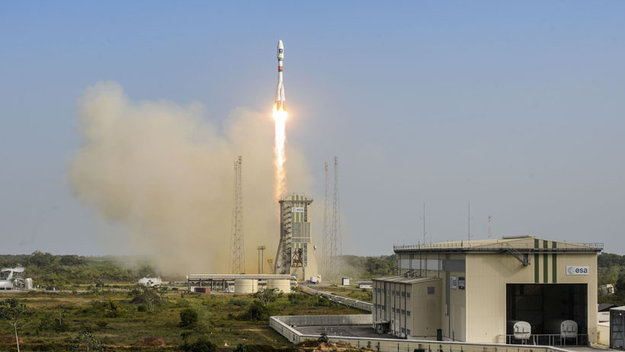
Replay of the launch transmission of Soyuz carrying Galileo satellites 11 and 12 on 17 December at 11:51 GMT from Europe’s Spaceport in French Guiana
Launch replay
17.12.2015 13:30 ESA Navigation
Replay of the launch transmission of Soyuz carrying Galileo satellites 11 and 12 on 17 December at 11:51 GMT from Europe’s Spaceport in French Guiana
20151217-Prodejna map
17.12.2015 13:11 ČÚZK /Urady/Zememericky-urad/O-uradu/Aktuality/20151217-Prodejna-map20151217-Prodejna map
17.12.2015 13:11 Zeměměřický úřad /Urady/Zememericky-urad/O-uradu/Aktuality/20151217-Prodejna-map20151217-Prodejna map
17.12.2015 13:11 ČÚZK - předpisy a opatření /Urady/Zememericky-urad/O-uradu/Aktuality/20151217-Prodejna-mapGalileo lifts off
17.12.2015 13:00 ESA Navigation
Replay of liftoff of Soyuz carrying Galileo satellites 11 and 12, at 11:51 GMT, from Europe’s Spaceport in French Guiana
Galileo lifts off
17.12.2015 13:00 ESA Navigation
Replay of liftoff of Soyuz carrying Galileo satellites 11 and 12, at 11:51 GMT, from Europe’s Spaceport in French Guiana
Ve složce Ke stažení - Mapové
17.12.2015 12:00 Plzeňský kraj Ve složce Ke stažení - Mapové kompozice a projekty - Mapy správního členění (http://geoportal.plzensky-kraj.cz/gs/mapy-spravniho-cleneni/) byla provedena kompletní aktualizace map s platností správního členění od 1. 1. 2016.Ve složce Ke stažení - Mapové
17.12.2015 12:00 Plzeňský kraj Ve složce Ke stažení - Mapové kompozice a projekty - Mapy správního členění byla provedena kompletní aktualizace map s platností správního členění od 1. 1. 2016.Shifting ice
17.12.2015 11:22 ESA Observing the Earth
ESA’s CryoSat mission has provided the best maps yet of the changing height of Earth’s largest ice sheets
T-MAPY se podílí na implementaci geoportálu na Kypru
17.12.2015 10:44 T-MAPY Ve spolupráci s partnerskou firmou NetU Consultants Ltd se podílíme na vývoji a implementaci národního geoportálu pro Zeměměřický úřad (Department of Lands and Surveys) Kyperské republiky. Cílem projektu je vytvořit moderní webový portál, který poskytne přístup ke geografickým datům tamním organizacím veřejné správy. Geoportál bude současně sloužit obcím i široké veřejnosti pro elektronickou komunikaci s úřadem.20151217-Oznámení na (různé) ředitele
17.12.2015 10:14 ČÚZK - předpisy a opatření /Urady/Katastralni-urady/Katastralni-urady/Katastralni-urad-pro-Stredocesky-kraj/Katastralni-pracoviste/KP-Praha-zapad/O-uradu/Aktuality/20152509-Oznameni-na-reditele-PV20151217-Oznámení na (různé) ředitele
17.12.2015 10:14 ČÚZK /Urady/Katastralni-urady/Katastralni-urady/Katastralni-urad-pro-Stredocesky-kraj/Katastralni-pracoviste/KP-Praha-zapad/O-uradu/Aktuality/20152509-Oznameni-na-reditele-PVDiMAP nová aplikace nejen pro správce silnic
17.12.2015 10:06DiMAP je nově vyvinutá webová aplikace, která byla prvotně nasazená na Správě a údržbě silnic Pardubického kraje (dále SÚS PK), kde slouží pro majetkoprávní přehled silničních pozemků v okrese Pardubice.
Aplikace DiMAP porovnává vlastnictví SÚS PK (parcely dle katastru nemovitostí) a plochu silničního tělesa silnice vč. náspů, příkopů, alejí… (určených z měření mobilním mapovacím systém). Prolnutím těchto dvou ploch se určí části pozemků, které nejsou ve vlastnictví SÚS PK a musí je koupit (červená plocha v obrázku), nadbytečné pozemky či jejich části, které můžou prodat (modrá plocha), a pozemky, které jsou v pořádku (zelená plocha). Výstupem z majetkoprávní části je seznam parcel, které má Pardubický kraj jako zřizovatel SÚS PK vypořádat. Zjistili jsme, že SÚS PK má 75 % výměry silnic ve svém vlastnictví.

Na základě dat v aplikaci je možné vyhodnotit potřebnou výměru pozemků a následnou cenu za výkup, rozsah nových hranic a cenu za geometrické plány. Pomocí těchto a dalších informací si SÚS PK dovede lépe stanovit finanční plán pro budoucí majetkoprávní vypořádání.
Největším přínosem aplikace DiMAP je snadný přehled pozemků SÚS PK nejen s možností vidět co vlastní, ale i to, co by měli vlastnit. Aktuální majetkoprávní stav je možné prohlížet jak v online mapě, tak i v tabulkách, které lze navíc i exportovat do MS Excel.
Webové prostředí umožňuje snadné nasazování nových verzi pro všechny uživatele, automatická aktualizace dat katastru nemovitostí, dostupnost registrovaných uživatelů z kteréhokoli počítače připojeného na internet.
Využití aplikace DiMAP je univerzální a lze ji využít i v jiných odvětvích např. železnice, vodní toky, či inženýrské sítě a jejich vztah k uzavřenosti věcných břemen.
20160420Oznámení o vyhlášení výběrového řízení na tři vedoucí pozice KP Mělník
17.12.2015 10:05 ČÚZK - předpisy a opatření /Urady/Katastralni-urady/Katastralni-urady/Katastralni-urad-pro-Stredocesky-kraj/O-uradu/Aktuality/20152509-Oznameni-na-reditele-TS,-PZ-a-PV-(1)20151217-Oznámení na (různé) ředitele-Pv,Pz,Ts
17.12.2015 10:05 ČÚZK - předpisy a opatření /Urady/Katastralni-urady/Katastralni-urady/Katastralni-urad-pro-Stredocesky-kraj/O-uradu/Aktuality/20152509-Oznameni-na-reditele-TS,-PZ-a-PV-(1)20160122-Oznámení na ředitele KP-Kladno, Mělník a Nymburk
17.12.2015 10:05 ČÚZK - předpisy a opatření /Urady/Katastralni-urady/Katastralni-urady/Katastralni-urad-pro-Stredocesky-kraj/O-uradu/Aktuality/20152509-Oznameni-na-reditele-TS,-PZ-a-PV-(1)20160122-Oznámení na ředitele KP-Kladno, Mělník a Nymburk
17.12.2015 10:05 ČÚZK /Urady/Katastralni-urady/Katastralni-urady/Katastralni-urad-pro-Stredocesky-kraj/O-uradu/Aktuality/20152509-Oznameni-na-reditele-TS,-PZ-a-PV-(1)20152509-Oznámení na ředitele Ben, Mbl, Kol, Prb (1)
17.12.2015 10:05 ČÚZK - předpisy a opatření /Urady/Katastralni-urady/Katastralni-urady/Katastralni-urad-pro-Stredocesky-kraj/O-uradu/Aktuality/20152509-Oznameni-na-reditele-TS,-PZ-a-PV-(1)20151217-Oznámení na (různé) ředitele-Pv,Pz,Ts
17.12.2015 10:05 ČÚZK /Urady/Katastralni-urady/Katastralni-urady/Katastralni-urad-pro-Stredocesky-kraj/O-uradu/Aktuality/20152509-Oznameni-na-reditele-TS,-PZ-a-PV-(1)20160420Oznámení o vyhlášení výběrového řízení na tři vedoucí pozice KP Mělník
17.12.2015 10:05 ČÚZK /Urady/Katastralni-urady/Katastralni-urady/Katastralni-urad-pro-Stredocesky-kraj/O-uradu/Aktuality/20152509-Oznameni-na-reditele-TS,-PZ-a-PV-(1)20152509-Oznámení na ředitele Ben, Mbl, Kol, Prb (1)
17.12.2015 10:05 ČÚZK /Urady/Katastralni-urady/Katastralni-urady/Katastralni-urad-pro-Stredocesky-kraj/O-uradu/Aktuality/20152509-Oznameni-na-reditele-TS,-PZ-a-PV-(1)Oznámení o vyhlášení výběrového řízení na služební místo ředitele odboru geodetických informací
17.12.2015 10:00 ČÚZK /Urady/Katastralni-urady/Katastralni-urady/Katastralni-urad-pro-Stredocesky-kraj/Uredni-deska/Oznameni-a-jina-uredni-sdeleni/Volna-mista/Oznameni-o-vyhlaseni-vyberoveho-rizeni-na-slu-(21)Ředitel/ka odboru geodetických informací Katastrálního pracoviště Praha-západ
17.12.2015 10:00 ČÚZK - volná místa /Urady/Katastralni-urady/Katastralni-urady/Katastralni-urad-pro-Stredocesky-kraj/Uredni-deska/Oznameni-a-jina-uredni-sdeleni/Volna-mista/Oznameni-o-vyhlaseni-vyberoveho-rizeni-na-slu-(21)Oznámení o vyhlášení výběrového řízení na služební místo ředitele odboru geodetických informací
17.12.2015 10:00 ČÚZK - volná místa /Urady/Katastralni-urady/Katastralni-urady/Katastralni-urad-pro-Stredocesky-kraj/Uredni-deska/Oznameni-a-jina-uredni-sdeleni/Volna-mista/Oznameni-o-vyhlaseni-vyberoveho-rizeni-na-slu-(21)Oznámení o vyhlášení výběrového řízení na služební místo ředitele odboru geodetických informací Kat
17.12.2015 10:00 ČÚZK - volná místa /Urady/Katastralni-urady/Katastralni-urady/Katastralni-urad-pro-Stredocesky-kraj/Uredni-deska/Oznameni-a-jina-uredni-sdeleni/Volna-mista/Oznameni-o-vyhlaseni-vyberoveho-rizeni-na-slu-(21)Ředitel/ka odboru geodetických informací Katastrálního pracoviště Praha-západ
17.12.2015 10:00 ČÚZK - předpisy a opatření /Urady/Katastralni-urady/Katastralni-urady/Katastralni-urad-pro-Stredocesky-kraj/Uredni-deska/Oznameni-a-jina-uredni-sdeleni/Volna-mista/Oznameni-o-vyhlaseni-vyberoveho-rizeni-na-slu-(21)Oznámení o vyhlášení výběrového řízení na služební místo ředitele odboru geodetických informací Kat
17.12.2015 10:00 ČÚZK - předpisy a opatření /Urady/Katastralni-urady/Katastralni-urady/Katastralni-urad-pro-Stredocesky-kraj/Uredni-deska/Oznameni-a-jina-uredni-sdeleni/Volna-mista/Oznameni-o-vyhlaseni-vyberoveho-rizeni-na-slu-(21)Oznámení o vyhlášení výběrového řízení na služební místo ředitele odboru geodetických informací
17.12.2015 10:00 ČÚZK - předpisy a opatření /Urady/Katastralni-urady/Katastralni-urady/Katastralni-urad-pro-Stredocesky-kraj/Uredni-deska/Oznameni-a-jina-uredni-sdeleni/Volna-mista/Oznameni-o-vyhlaseni-vyberoveho-rizeni-na-slu-(21)Ředitel/ka odboru geodetických informací Katastrálního pracoviště Praha-západ
17.12.2015 10:00 ČÚZK /Urady/Katastralni-urady/Katastralni-urady/Katastralni-urad-pro-Stredocesky-kraj/Uredni-deska/Oznameni-a-jina-uredni-sdeleni/Volna-mista/Oznameni-o-vyhlaseni-vyberoveho-rizeni-na-slu-(21)Oznámení o vyhlášení výběrového řízení na služební místo ředitele odboru geodetických informací Kat
17.12.2015 10:00 ČÚZK /Urady/Katastralni-urady/Katastralni-urady/Katastralni-urad-pro-Stredocesky-kraj/Uredni-deska/Oznameni-a-jina-uredni-sdeleni/Volna-mista/Oznameni-o-vyhlaseni-vyberoveho-rizeni-na-slu-(21)Ředitel/ka odboru právních vztahů k nemovitostem Katastrálního pracoviště Praha-západ
17.12.2015 9:59 ČÚZK /Urady/Katastralni-urady/Katastralni-urady/Katastralni-urad-pro-Stredocesky-kraj/Uredni-deska/Oznameni-a-jina-uredni-sdeleni/Volna-mista/Oznameni-o-vyhlaseni-vyberoveho-rizeni-na-slu-(20)Oznámení o vyhlášení výběrového řízení na služební místo ředitele odboru právních vztahů k nemov
17.12.2015 9:59 ČÚZK /Urady/Katastralni-urady/Katastralni-urady/Katastralni-urad-pro-Stredocesky-kraj/Uredni-deska/Oznameni-a-jina-uredni-sdeleni/Volna-mista/Oznameni-o-vyhlaseni-vyberoveho-rizeni-na-slu-(20)Ředitel/ka odboru právních vztahů k nemovitostem Katastrálního pracoviště Praha-západ
17.12.2015 9:59 ČÚZK - volná místa /Urady/Katastralni-urady/Katastralni-urady/Katastralni-urad-pro-Stredocesky-kraj/Uredni-deska/Oznameni-a-jina-uredni-sdeleni/Volna-mista/Oznameni-o-vyhlaseni-vyberoveho-rizeni-na-slu-(20)Ředitel/ka odboru právních vztahů k nemovitostem Katastrálního pracoviště Praha-západ
17.12.2015 9:59 ČÚZK - předpisy a opatření /Urady/Katastralni-urady/Katastralni-urady/Katastralni-urad-pro-Stredocesky-kraj/Uredni-deska/Oznameni-a-jina-uredni-sdeleni/Volna-mista/Oznameni-o-vyhlaseni-vyberoveho-rizeni-na-slu-(20)Oznámení o vyhlášení výběrového řízení na služební místo ředitele odboru právních vztahů k nemov
17.12.2015 9:59 ČÚZK - volná místa /Urady/Katastralni-urady/Katastralni-urady/Katastralni-urad-pro-Stredocesky-kraj/Uredni-deska/Oznameni-a-jina-uredni-sdeleni/Volna-mista/Oznameni-o-vyhlaseni-vyberoveho-rizeni-na-slu-(20)Oznámení o vyhlášení výběrového řízení na služební místo ředitele odboru právních vztahů k nemov
17.12.2015 9:59 ČÚZK - předpisy a opatření /Urady/Katastralni-urady/Katastralni-urady/Katastralni-urad-pro-Stredocesky-kraj/Uredni-deska/Oznameni-a-jina-uredni-sdeleni/Volna-mista/Oznameni-o-vyhlaseni-vyberoveho-rizeni-na-slu-(20)Ředitel/ka odboru geodetických informací Katastrálního pracoviště Praha-východ
17.12.2015 9:58 ČÚZK - předpisy a opatření /Urady/Katastralni-urady/Katastralni-urady/Katastralni-urad-pro-Stredocesky-kraj/Uredni-deska/Oznameni-a-jina-uredni-sdeleni/Volna-mista/Oznameni-o-vyhlaseni-vyberoveho-rizeni-na-slu-(19)Oznámení o vyhlášení výběrového řízení na služební místo ředitele odboru geodetických informací Kat
17.12.2015 9:58 ČÚZK - volná místa /Urady/Katastralni-urady/Katastralni-urady/Katastralni-urad-pro-Stredocesky-kraj/Uredni-deska/Oznameni-a-jina-uredni-sdeleni/Volna-mista/Oznameni-o-vyhlaseni-vyberoveho-rizeni-na-slu-(19)Oznámení o vyhlášení výběrového řízení na služební místo ředitele odboru geodetických informací Kat
17.12.2015 9:58 ČÚZK - předpisy a opatření /Urady/Katastralni-urady/Katastralni-urady/Katastralni-urad-pro-Stredocesky-kraj/Uredni-deska/Oznameni-a-jina-uredni-sdeleni/Volna-mista/Oznameni-o-vyhlaseni-vyberoveho-rizeni-na-slu-(19)Ředitel/ka odboru geodetických informací Katastrálního pracoviště Praha-východ
17.12.2015 9:58 ČÚZK /Urady/Katastralni-urady/Katastralni-urady/Katastralni-urad-pro-Stredocesky-kraj/Uredni-deska/Oznameni-a-jina-uredni-sdeleni/Volna-mista/Oznameni-o-vyhlaseni-vyberoveho-rizeni-na-slu-(19)Oznámení o vyhlášení výběrového řízení na služební místo ředitele odboru geodetických informací Kat
17.12.2015 9:58 ČÚZK /Urady/Katastralni-urady/Katastralni-urady/Katastralni-urad-pro-Stredocesky-kraj/Uredni-deska/Oznameni-a-jina-uredni-sdeleni/Volna-mista/Oznameni-o-vyhlaseni-vyberoveho-rizeni-na-slu-(19)Ředitel/ka odboru geodetických informací Katastrálního pracoviště Praha-východ
17.12.2015 9:58 ČÚZK - volná místa /Urady/Katastralni-urady/Katastralni-urady/Katastralni-urad-pro-Stredocesky-kraj/Uredni-deska/Oznameni-a-jina-uredni-sdeleni/Volna-mista/Oznameni-o-vyhlaseni-vyberoveho-rizeni-na-slu-(19)Oznámení o vyhlášení výběrového řízení na služební místo ředitele odboru právních vztahů k nemovitos
17.12.2015 9:56 ČÚZK - volná místa /Urady/Katastralni-urady/Katastralni-urady/Katastralni-urad-pro-Stredocesky-kraj/Uredni-deska/Oznameni-a-jina-uredni-sdeleni/Volna-mista/Oznameni-o-vyhlaseni-vyberoveho-rizeni-na-slu-(18)Ředitel/ka odboru právních vztahů k nemovitostem Katastrálního pracoviště Praha-východ
17.12.2015 9:56 ČÚZK - předpisy a opatření /Urady/Katastralni-urady/Katastralni-urady/Katastralni-urad-pro-Stredocesky-kraj/Uredni-deska/Oznameni-a-jina-uredni-sdeleni/Volna-mista/Oznameni-o-vyhlaseni-vyberoveho-rizeni-na-slu-(18)Oznámení o vyhlášení výběrového řízení na služební místo ředitele odboru právních vztahů k nemovitos
17.12.2015 9:56 ČÚZK /Urady/Katastralni-urady/Katastralni-urady/Katastralni-urad-pro-Stredocesky-kraj/Uredni-deska/Oznameni-a-jina-uredni-sdeleni/Volna-mista/Oznameni-o-vyhlaseni-vyberoveho-rizeni-na-slu-(18)Ředitel/ka odboru právních vztahů k nemovitostem Katastrálního pracoviště Praha-východ
17.12.2015 9:56 ČÚZK - volná místa /Urady/Katastralni-urady/Katastralni-urady/Katastralni-urad-pro-Stredocesky-kraj/Uredni-deska/Oznameni-a-jina-uredni-sdeleni/Volna-mista/Oznameni-o-vyhlaseni-vyberoveho-rizeni-na-slu-(18)Ředitel/ka odboru právních vztahů k nemovitostem Katastrálního pracoviště Praha-východ
17.12.2015 9:56 ČÚZK /Urady/Katastralni-urady/Katastralni-urady/Katastralni-urad-pro-Stredocesky-kraj/Uredni-deska/Oznameni-a-jina-uredni-sdeleni/Volna-mista/Oznameni-o-vyhlaseni-vyberoveho-rizeni-na-slu-(18)Oznámení o vyhlášení výběrového řízení na služební místo ředitele odboru právních vztahů k nemovitos
17.12.2015 9:56 ČÚZK - předpisy a opatření /Urady/Katastralni-urady/Katastralni-urady/Katastralni-urad-pro-Stredocesky-kraj/Uredni-deska/Oznameni-a-jina-uredni-sdeleni/Volna-mista/Oznameni-o-vyhlaseni-vyberoveho-rizeni-na-slu-(18)Ředitel/ka odboru obnovy katastrálního operátu Technické sekce Katastrálního úřadu pro Středočeský
17.12.2015 9:54 ČÚZK - předpisy a opatření /Urady/Katastralni-urady/Katastralni-urady/Katastralni-urad-pro-Stredocesky-kraj/Uredni-deska/Oznameni-a-jina-uredni-sdeleni/Volna-mista/Oznameni-o-vyhlaseni-vyberoveho-rizeni-na-slu-(17)Ředitel/ka odboru obnovy katastrálního operátu Technické sekce Katastrálního úřadu pro Středočeský
17.12.2015 9:54 ČÚZK /Urady/Katastralni-urady/Katastralni-urady/Katastralni-urad-pro-Stredocesky-kraj/Uredni-deska/Oznameni-a-jina-uredni-sdeleni/Volna-mista/Oznameni-o-vyhlaseni-vyberoveho-rizeni-na-slu-(17)Oznámení o vyhlášení výběrového řízení na služební místo ředitele odboru obnovy katastrálního operát
17.12.2015 9:54 ČÚZK /Urady/Katastralni-urady/Katastralni-urady/Katastralni-urad-pro-Stredocesky-kraj/Uredni-deska/Oznameni-a-jina-uredni-sdeleni/Volna-mista/Oznameni-o-vyhlaseni-vyberoveho-rizeni-na-slu-(17)Oznámení o vyhlášení výběrového řízení na služební místo ředitele odboru obnovy katastrálního operát
17.12.2015 9:54 ČÚZK - volná místa /Urady/Katastralni-urady/Katastralni-urady/Katastralni-urad-pro-Stredocesky-kraj/Uredni-deska/Oznameni-a-jina-uredni-sdeleni/Volna-mista/Oznameni-o-vyhlaseni-vyberoveho-rizeni-na-slu-(17)Oznámení o vyhlášení výběrového řízení na služební místo ředitele odboru obnovy katastrálního operát
17.12.2015 9:54 ČÚZK - předpisy a opatření /Urady/Katastralni-urady/Katastralni-urady/Katastralni-urad-pro-Stredocesky-kraj/Uredni-deska/Oznameni-a-jina-uredni-sdeleni/Volna-mista/Oznameni-o-vyhlaseni-vyberoveho-rizeni-na-slu-(17)Ředitel/ka odboru obnovy katastrálního operátu Technické sekce Katastrálního úřadu pro Středočeský
17.12.2015 9:54 ČÚZK - volná místa /Urady/Katastralni-urady/Katastralni-urady/Katastralni-urad-pro-Stredocesky-kraj/Uredni-deska/Oznameni-a-jina-uredni-sdeleni/Volna-mista/Oznameni-o-vyhlaseni-vyberoveho-rizeni-na-slu-(17)Právní předpisy v oboru zeměměřictví a katastru
17.12.2015 9:48 ČÚZK - předpisy a opatření /Predpisy/Pravni-predpisy-v-oboru-zememerictvi-a-katastr-(1)Právní předpisy v oboru zeměměřictví a katastru od 1.1.2016
17.12.2015 9:48 ČÚZK - předpisy a opatření /Predpisy/Pravni-predpisy-v-oboru-zememerictvi-a-katastru-odSluzebni_-predpis_c_3
17.12.2015 9:43 ČÚZK - předpisy a opatření /Predpisy/Resortni-predpisy-a-opatreni/Resortni-predpisy-a-opatreni/Sluzebni_-predpis_c_3VPoo4_2015 (1)
17.12.2015 7:17 ČÚZK - předpisy a opatření /Urady/Katastralni-urady/Katastralni-urady/Katastralni-urad-pro-Jihomoravsky-kraj/Katastralni-pracoviste/KP-Znojmo/Uredni-deska/Oznameni-a-jina-uredni-sdeleni/VPoo4_2015-(1)VPoo4_2015
17.12.2015 7:14 ČÚZK - předpisy a opatření /Urady/Katastralni-urady/Katastralni-urady/Katastralni-urad-pro-Jihomoravsky-kraj/Katastralni-pracoviste/KP-Znojmo/Uredni-deska/Oznameni-a-jina-uredni-sdeleni/VPoo4_2015Nová generace produktů GEPRO
17.12.2015 7:00 Česká asociace pro geoinformace Kolektivní člen CAGI, společnost GEPRO, uvolnila novou generaci svých produktů. Verzi 13 všech produktů můžete stahovat z webovéhoMapa kvartérního pokryvu 1 : 500 000 (GEOČR500)
17.12.2015 1:00 Cenia - Katalog metadat ČR - INSPIRE WMS služba zobrazuje nejdůležitější typy kvartérních sedimentů, tj. eolické, říční, ledovcové a organické. Z říčních sedimentů jsou zvlášť vyčleněny současné nivy, ohrožené možnými záplavami za povodní. Ledovcové uloženiny se vyskytují v okrajové oblasti severních Čech a severní Moravy. Z organických sedimentů jsou rašeliny vázány na horské oblasti, slatiny na nižší nadmořské výšky. Travertiny členíme na karbonáty termálních mineralizovaných vod a karbonáty vysrážené ze studených vod prostých.Mapa radonového indexu 1 : 500 000 (GEOČR500)
17.12.2015 1:00 Cenia - Katalog metadat ČR - INSPIRE WMS služba mapy radonového indexu geologického podloží 1 : 500 000. Popisuje převažující radonový index geologického podloží: 1. Nízký (mezozické a terciérní sedimentární horniny), 2. Přechodný (kvartérní sedimentární horniny), 3. střední (metamorfované horniny a paleozoické sedimenty), 4. Vysoký (magmatické horniny, s výjimkou prevariských granitoidů – střední index), 5. Tektonické linie, 6. Hranice krajůGeologická mapa České republiky 1 : 500 000 (GEOČR500)
17.12.2015 1:00 Cenia - Katalog metadat ČR - INSPIRE WMS služba zobrazuje geologickou mapu České republiky v měřítku 1 : 500 000.Oznámení o vyhlášení výběrového řízení na služební místo ředitel odboru personálního
17.12.2015 0:00 Státní pozemkový úřadVelmi rychlé a přesné měření technologických zařízení
16.12.2015 20:30 GIS-STAVINVEX Požadavek zákazníka: Dodání komplexního 3D modelu skipové jámy pro následnou projekční činnost, tak aby byl kompatibilní s jeho CAD systémem. Jakákoliv neplánovaná odstávka vysoké pece […]Družice Galileo jsou ve startovací zóně
16.12.2015 15:29 Český Kosmický PortálDružice Galileo 11 a 12 jsou na startovací rampě, připojené ke své raketě Sojuz - a připravené na start tento týden.
Družice Galileo jsou ve startovací zóně
16.12.2015 15:29 Český Kosmický PortálDružice Galileo 11 a 12 jsou na startovací rampě, připojené ke své raketě Sojuz - a připravené na start tento týden.
Watch Galileo launch
16.12.2015 15:10 ESA Navigation
See the launch of Galileo satellites 11 and 12 on Thursday 17 December. Streaming starts at 11:30 GMT (12:30 CET)
Watch Galileo launch
16.12.2015 15:10 ESA Navigation
See the launch of Galileo satellites 11 and 12 on Thursday 17 December. Streaming starts at 11:31 GMT (12:31 CET)
20151216-výběrová řízení-ředitelé KP Příbram, Ml. Boleslav, Kolín, Benešov
16.12.2015 12:16 ČÚZK - předpisy a opatření /Aktuality-resort/2015/20151216-vyberova-rizeni-reditele-KP-Pribram,-Ml-B20151216-výběrová řízení-ředitelé KP Příbram, Ml. Boleslav, Kolín, Benešov
16.12.2015 12:16 ČÚZK /Aktuality-resort/20151216-vyberova-rizeni-reditele-KP-Pribram,-Ml-B20151216-výběrová řízení-ředitelé KP Příbram, Ml. Boleslav, Kolín, Benešov
16.12.2015 12:16 ČÚZK - předpisy a opatření /Aktuality-resort/20151216-vyberova-rizeni-reditele-KP-Pribram,-Ml-B20151216-výběrová řízení-ředitelé KP Příbram, Ml. Boleslav, Kolín, Benešov
16.12.2015 12:16 ČÚZK /Aktuality-resort/2015/20151216-vyberova-rizeni-reditele-KP-Pribram,-Ml-BDne 11. prosince 2015 převzal
16.12.2015 12:00 Plzeňský kraj Dne 11. prosince 2015 převzal Plzeňský kraj dílo Doplnění účelové mapy povrchové situace Digitální technické mapy Plzeňského kraje 2015. Více informací je k dispozici zde.Dne 11. prosince 2015 převzal
16.12.2015 12:00 Plzeňský kraj Dne 11. prosince 2015 převzal Plzeňský kraj dílo Doplnění účelové mapy povrchové situace Digitální technické mapy Plzeňského kraje 2015. Více informací je k dispozici zde (http://www.plzensky-kraj.cz/cs/clanek/doplneni-ucelove-mapy-povrchove-situace-digitalni-technicke-mapy-plzenskeho-kraje-2015-prevza).2015-2016: Shaping the Future of European GNSS
16.12.2015 10:02 European GNSS AgencyAs 2015 draws to a close, we find ourselves reflecting on the past year – the challenges and the accomplishments – while also looking at what’s ahead.
2015 marked a very important year for the Agency and for the entire European GNSS community. Both of Europe’s GNSS programmes – Galileo and EGNOS – saw substantial progress. For Galileo 2015 was a record-breaking year, with the launch of six satellites. This, in addition to a ground segment already nearing completion, Galileo’s future looks brighter than ever.
In anticipation for the launch of Initial Services, the GSA has been busy preparing the user segment. For example, we recently launched ‘Fundamental Elements’, an R&D funding mechanism supporting the development of chipsets and receivers. This is an important part of the GSA’s overall strategy of market uptake, with the aim of facilitating the development of EGNOS and Galileo applications across different sectors of the economy.
Likewise, EGNOS continues to provide a solid performance – and with V2 and V3 ready for launch, this performance will only be further enhanced in the coming months. From the user perspective, we are continuing to see increases in EGNOS adoption across numerous market segments, including maritime and rail. In the aviation sector, for example, the launch of LPV 200 has seen more and more airports and aircraft operators choosing to become EGNOS-enabled. Thanks to our continued dialogue with a range of stakeholders, we fully expect this trend to continue.
Of course the success of both Galileo and EGNOS is heavily dependent on our ability to convert this technology into tangible benefits for the end user. For this reason, the GSA remains committed to supporting R&D activities. Along this line, we recently announced the results of the second call for Galileo applications under the Horizon 2020 programme for research and innovation. Nearly EUR 25M in funding went to 13 projects, covering transport, surveying, location-based services, agriculture, emergency services and other professional applications.
Turning towards the future, I am honoured to have been re-elected to serve as the Executive Director of the GSA for another four years. In these upcoming years we will put into practice all that we have been preparing for. In 2016 the GSA will finalize the contract for the future Galileo service provider and by 2017 the Agency will be fully responsible for the service and operations of Galileo.
We enter the New Year in the midst of an exciting time for the GNSS market. As indicated in the GSA’s 2015 GNSS Market Report, which has become the industry reference, today there are more than 4 billion devices using GNSS services, and that number is expected to triple by 2023. The sector is estimated to grow at more than 8% each year until at least 2019. With all this potential for GNSS – and in particular European GNSS – the GSA is confident that together with the European GNSS community, we will be able to harness this technology and translate it into jobs, business opportunities and economic sustainability for the benefit of all European citizens.
Best wishes for a happy and fruitful 2016.
Media note: This feature can be republished without charge provided the European GNSS Agency (GSA) is acknowledged as the source at the top or the bottom of the story. You must request permission before you use any of the photographs on the site. If you republish, we would be grateful if you could link back to the GSA website (http://www.gsa.europa.eu).

Staň se Ježíškem 3
16.12.2015 9:07V letošním roce jsme nejenom sbírali plyšáky, ale rovněž jsme se zapojili do podpory dětí s autismem. V rámci akce “Staň se Ježíškem 3” Základní školy Štolcova v Brně, která se věnuje právě autistickým dětem, jsme pořídili několik dárků a ty jsme nadělili těmto dětem. V úterý 14.12.2015 jsme měli možnost se účastnit školní besídky, kde žáci vystoupili a dárky si rozbalili. Pro všechny to byl velký zážitek. Pokud byste se rádi něco dozvěděli o autismu či chtěli školu rovněž podpořit, informace najdete na www.proaut.cz

VPOO11_2015
16.12.2015 8:46 ČÚZK - předpisy a opatření /Urady/Katastralni-urady/Katastralni-urady/Katastralni-urad-pro-Jihomoravsky-kraj/Katastralni-pracoviste/KP-Znojmo/Uredni-deska/Oznameni-a-jina-uredni-sdeleni/VPOO11_2015Oznámení o zkrácení úředních hodin dne 31.12.2015
16.12.2015 7:45 ČÚZK - předpisy a opatření /Urady/Katastralni-urady/Katastralni-urady/Katastralni-urad-pro-Vysocinu/O-uradu/Aktuality/Informace-o-zkraceni-urednich-hodin-23-12-2015Oznámení o zkrácení úředních hodin dne 23.12.2015
16.12.2015 7:45 ČÚZK /Urady/Katastralni-urady/Katastralni-urady/Katastralni-urad-pro-Vysocinu/O-uradu/Aktuality/Informace-o-zkraceni-urednich-hodin-23-12-2015Oznámení o zkrácení úředních hodin dne 31.12.2015
16.12.2015 7:45 ČÚZK /Urady/Katastralni-urady/Katastralni-urady/Katastralni-urad-pro-Vysocinu/O-uradu/Aktuality/Informace-o-zkraceni-urednich-hodin-23-12-2015Oznámení o zkrácení úředních hodin dne 23.12.2015
16.12.2015 7:45 ČÚZK - předpisy a opatření /Urady/Katastralni-urady/Katastralni-urady/Katastralni-urad-pro-Vysocinu/O-uradu/Aktuality/Informace-o-zkraceni-urednich-hodin-23-12-2015VUV oblasti povrchových vod využívaných ke koupání
16.12.2015 1:00 Cenia - Katalog metadat ČR - INSPIRE Oblasti povrchových vod využívaných ke koupáníMapa kvartérního pokryvu 1 : 500 000 (GEOCR500)
16.12.2015 1:00 Cenia - Katalog metadat ČR - INSPIRE WMS služba zobrazuje nejdůležitější typy kvartérních sedimentů, tj. eolické, říční, ledovcové a organické. Z říčních sedimentů jsou zvlášť vyčleněny současné nivy, ohrožené možnými záplavami za povodní. Ledovcové uloženiny se vyskytují v okrajové oblasti severních Čech a severní Moravy. Z organických sedimentů jsou rašeliny vázány na horské oblasti, slatiny na nižší nadmořské výšky. Travertiny členíme na karbonáty termálních mineralizovaných vod a karbonáty vysrážené ze studených vod prostých.Czechspace 12
15.12.2015 22:56 Česká kosmická kancelářVyšlo 12. číslo časopisu Czechspace, ve kterém naleznete informace o událostech v české kosmonautice druhé poloviny roku 2015. Kromě pravidelných rubrik, je v tomto čísle několik zajímavých rozhovorů s osobnostmi, působících v různých odvětvích kosmonautiky.



